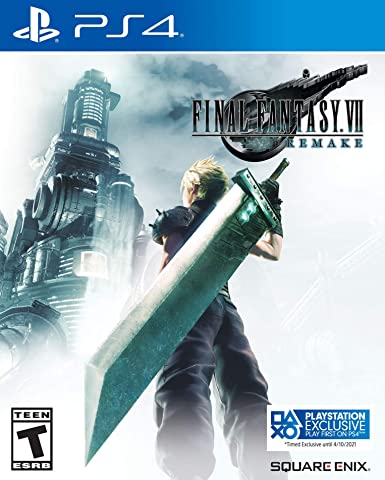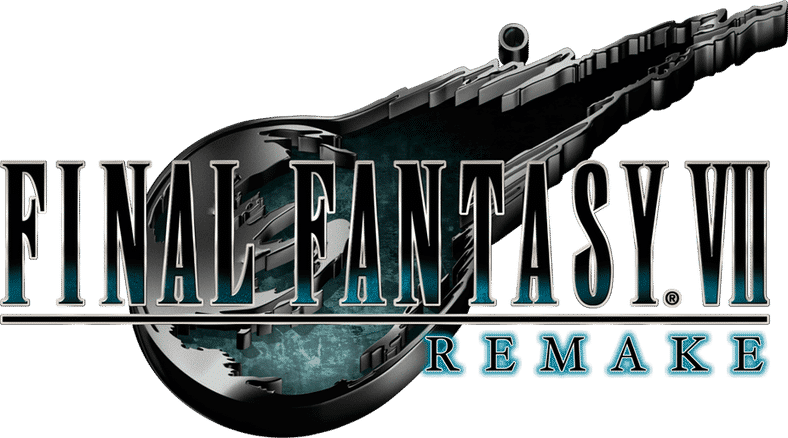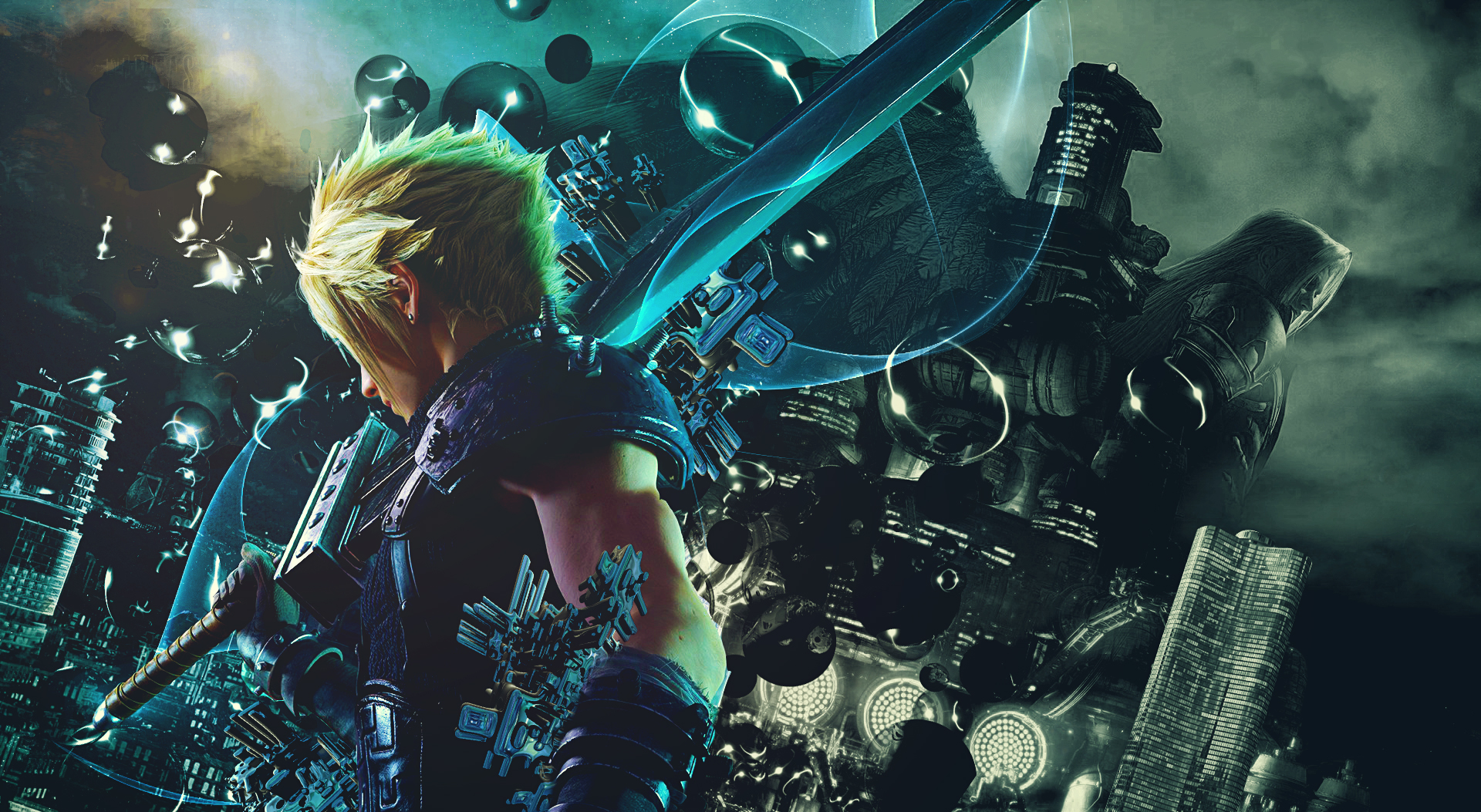Final Fantasy VII Remake Review
- Developer: Square Enix
- Publisher: Bandai Namco (AU)
- Release: April 10, 2020

In a generation where we are seeing a renaissance of re-imagined franchises resurfacing, it was only a matter of time before Japanese development company Square Enix, decided to take a stroll down memory lane and revisit one of its historically and critically acclaimed entry’s into the Final Fantasy Saga. Final Fantasy VII is held to the highest regard for many, as one of the greatest JRPG’s ever, period. It is Square Enix’s (then SquareSoft) Magnum Opus, and its legacy draws inspiration which echoes through many of its future iterations, and other JRPG title’s on the market today. While turn-based RPG’s have been mastered by many a Japanese studio, the Final Fantasy series saw itself evolve and shy away from strictly keeping its own style locked to its certain gameplay loop. Rather, experimenting with its modern line-up in a “free roam”, hack-and-slash style title, that many would draw a comparison to in the Kingdom Hearts, or Nier Automata series.
To think that 1997 was now 23 years ago, and the narrative/source material that was recycled to bring brand new life to an already acclaimed title, would be ludicrous and sacrilegious to many a fan, and developer. However, Square Enix took that risk knowing its devotee’s would instantly gush over a depiction of Final Fantasy VII, in a modernised presentation. Well here we are in 2020, and falling in love with Final Fantasy all over again. Final Fantasy VII: Remake has reignited its appraisal, from old school fans, to a new generation of supporters. Its groundbreaking and inarguable how Kazushige Nojima – Writer for both the original and remake – could take the mystique and wonder from his original script, and turn it into a modern day, action packed experience. It shows the cinematic class of adaptation that gaming could adapt from previous classics.
Final Fantasy VII follows mercenary Cloud Strife, and ex-military member for ‘SOLDIER’; a private militia of advanced super-soldiers trained to be the ultimate combatants. With SOLDIER under the command of the Shinra Electronic Power Company and its world leaders, Cloud decides to go AWOL and join AVALANCHE, a rebel alliance that decides to destroy Shinra, and its elite army of fighters. The group infiltrate SOLDIER’s sectors, and devise a plan to detonate a bomb in the Sector 1 of Shinra, causing a massive explosion and disrupting their energy Reactors. Comprised by a party of five, AVALANCHE is lead by Barret Wallace, a rough and gruff, tough as nails, short tempered yet sensitive guy, who would do anything to protect his clan and his daughter, Marlene. Barret and Cloud are confronted by a Giant Scorpion Sentinel that attempts to thwart their plans. After the duo defeat the mechanical monster, they make a break for the exit with Jessie in tow.
Successfully, the group halts the militant’s plans on stealing Mako from the planet (a spiritual energy that provides power). Cloud separates from the group momentarily, with plans on rejoining them back at base camp. While roaming through the bustling streets of Midgar, Cloud begins to hallucinate and recount haunted memories of Sephiroth, a former high ranking member of SOLIDER. Overwhelmed by his visions, Cloud exclaims to the apparition that he can’t be real. Sephiroth sarcastically questions his existence after reminding Cloud that he enjoyed being killed by the mercenary, dubbing it “the crowning moment” of their time together. Cloud then experiences another vision of his home burning down, with his mother trapped inside. He warns Cloud to run away, in which Cloud retaliates and attacks the fading SOLDIER, snapping Cloud out of this supposed Mako induced illusion.
With Midgar in panic, Cloud roams through the startled crowds to see a young woman seemingly also in hysteria over mysterious visions. He runs up to her but is suddenly met once again with the apparition of Sephiroth confronting them. The former SOLDIER demeans the merc, claiming he is too weak to save anyone. After the situation is diffused, the young woman thanks Cloud by offering a flower in which he warns her that he’s on serious business. She responds whimsically stating that there’s no threat apparent and that he needs to relax. Suddenly, she is again sent into a whirlwind of panic, and reaches for Cloud’s arm begging for his help. Invaded by a flurry of what could only be explained as spectral visions, they are also confronted by a hoard of security guards from SOLDIER. It’s at this point where we get our first real taste of Final Fantasy VII: Remake’s incredible gameplay loop.
While there is the classic turn-based option available for traditionalists who prefer playing through the title in its original format, its nuances and upgraded cosmetics are intended to make for a true cinematic experience all round. It is recommended that you play the title in its modern gameplay loop to truly appreciate how highly regarded Final Fantasy’s open world JRPG format has evolved. Fundamentally, its sleek hack-and-slash styles are akin to its corresponding prequels. It truly feels like an amalgamation of everything you know and love of the entire franchise placed into the one title. It honestly felt like a whole new world, that strips the monotony of any JRPG mechanics. Its steadfast pace helps with the overall engagement, with all the beloved elements that are familiar within the established franchise. Switching out between different members of AVALANCHE is so seamless, it makes for such a satisfying combat sequence.
A whole new world... sort of.
Controlling Cloud allows you to command other active members of your crew that may be controlled by AI, but this feature will override any predetermined actions to benefit you in the heat of battle. The ATB (Active Time Bar) is reestablished in the remake, with new elements included. While previously allowing characters to take segmented moves, it now hedges the players specific actions. The ATB tracks your spells, special abilities and item usage in divided fractions. The gameplay loop encourages you to switch between party members while in battle, allowing the ATB to slowly regenerate. Each character comes with their own unique special ability, that won’t affect the ATB. Switching out to Cloud’s Punisher mode, allows you to unleash a flurry of strikes and slashes which contrasts his Operator mode which see’s a heavier attack in each sling of his Buster Sword.
Barret makes use of his bio-mechanical blaster that allows for recharge while on stand-by. Tifa’s hands on approach displays her inadequate martial arts style that can be improved and by spending ATB bars, allowing for brute strength, along with her ability to unleash Aerith’s Tempest fires, which singes each enemy, knocking them out. Equipping Materia allows players to unlock other abilities and spells. Materia plays a key role within Final Fantasy VII’s narrative, as it is revealed to be crystalised Mako, which benefits the party, increasing their powers and leveling further into the game. Using specific attributes attached to each Materia orb, displays different features that are allocated character by character. With each encounter’s unexpected happenstance, you will find each Materia’s attribute will come quite handy within their own respective difficulty spikes.
Much like a traditional JRPG, each hoard comes with their own magical abilities to incapacitate your party, rendering some members useless for a temporary duration. Garnering experience through your adventure only allows your armory to be upgraded with SP or as “the kids” say, Mana. Utilising SP allows players to boost stats, increase their magic attacks and strength in physical attacks. Be weary of each upgrade, as strength’s and weaknesses of each equipped piece of weaponry will become apparent as you progress. This will overall show your party’s true strengths, but may also be detrimental, exposing their weaknesses later on. Materia also levels up while unequipped, so even while you may collect duplicates of the same orbs, they will rank-up over time. These are just some examples of some grinding you will experience throughout your time in-game.
Playing perfectionist and carefully equipping your armor will all come down to how you prefer to play. Various characteristics of adaption play in part of which character you will most likely have lead your party. This all plays in part of the title’s UI & Menu System. You may find yourself spending more time than anticipated finding your weapon of choice, along with other accessories that will either help with your strength, speed and agility. While diverse, I found the Menu system to be a little overwhelming at times with the amount of options present, but nothing that was completely out of the ordinary or unexpected from Final Fantasy. Understanding the variables in playstyles presented within each character allows you to accustom yourself with the game’s copious amount of choice. Placing party members within a devoted class (healer, mage, tank, etc) make’s encounters completely streamlined and seamlessly enjoyable on its forefront.
Final Fantasy VII: Remake attests to the original's timeless narrative and its legendary status from its enthralling story, incredible gameplay, and its remarkable redesign.
Yes the game does get difficult near the end, so be prepared for some intense grinding. While the title aims to be a cinematic experience overall, there are moments where it will deviate from this stance and take you right into the deep end. There were moments of panic and frustration at times where I would painstakingly choose to swap out to other members, yet have them be fallen or completely absent. Of course, this is all on my own part and not the game’s fault. But what it shows is how difficult the adventure truly becomes and how engaging it truly is. In one moment, you’re in a relaxed environment with narrative progression, then thrown right into thick of it in mere seconds. What this displays is the title’s flexibility, and how quick its call to action really is.
SOLID POINTS
✔️Faithful to the source material
✔️Original FFVII Characters, Re-Imagined
✔️Absolutely Stunning. The best looking title of 2020 thus far.
❌Some Texture Pop-in, but nothing a patch can’t fix.
If there was anything to take away from this title, it’s how unbelievably stunning it is in overall design and presentation. After many years of playing the original PlayStation One version of the title, never would I have thought that Square Enix would literally bring these characters to life they way they did. The attention to detail is astonishing, and displays an unimaginable amount of detail. With every follicle of hair, to every freckle on each cheek, we are get a glimpse inside the brilliant mind of Tetsuya Nomura, and his creative genius of character design.
While conceptually designing many of the characters’ artwork, in real-time they were translated to the poly-limited stocky characters we became familiar with overtime. However, gazing upon our first real render of Cloud in the dreary streets of Midgar, truly showcases what we all imagined the world of Final Fantasy VII to genuinely represent. This is what left fans salivating. To experience what would be as close to a “true-to-life” remaster, from a title that at one time could have only been dreamt about is still the ultimate fantasy.
While character models and redesigns are faithful, and absolutely impressive, the sensational redesign of the entire city of Midgar and its outskirts will leave you floored. While pacing through a linear experience at times, there are moments of exploration that will have you observing your surroundings from time to time. For experienced Final Fantasy VII players, this will no doubt have you beaming from ear to ear. I found myself mesmirised the entire duration. While I did experience some texture pop-in from time to time, this did not take me away from my overwhelming indulgence, and how gratified I was finishing this title. You do really experience a completely package of excellence that is rare amongst the divisive genre.
In a masterclass of its own...
The official soundtrack of the title is truly where it will tickle your nostalgia bone. Within every piece, comes a nice throwback to the original title beginning with its Prelude, right up to the credits. Not every track from the original is present however, and there are some original compositions and pieces in place from an assortment of composers. With legendary Video Game Composer, Nobuo Uemastu at the helm of every Final Fantasy title ever, FF7R’s remaster was no exception. Along with Uemastu’s brilliance, he is accompanied by a masterclass of composers that include Yoshitaka Suzuki, Shotaro Shima and Yoshinori Nakamura, each arranging and rearranging every musical piece presented. From contemporary and peaceful, to fast and outrageous the soundtrack plays in-part of the action, gameplay and impressive cinematics encountered.
Along with a variety of callbacks that include the fanfare tune, which is mocked by Barret near the beginning of the game, we’re treated to the best of the best in Video Game voice acting which include cameos by notable Hollywood actors. Max Mittelman (Persona 5, One Punch Man), Erika Harlacher (Persona 5, Violet Evergarden), Erica Lindbeck (Persona 5, Mortal Kombat 11), John DiMaggio (Futurama, Gears of War), Yuri Lowenthal (Spider-Man PS4, Catherine: Full Body) are some of the most notable figures within the Video Game and Anime world, and held with high regard as the best in the industry today. We’re also treated to Tyler Hoechlin (Supergirl), newcomer Briana White who absolutely nails her role as Aerith, and leading man Cody Christian (Teen Wolf, True Blood) in his first VO outing as Cloud Strife. Each character breathe’s new life with each actor’s respective role, injecting new personality traits that we could only assume when playing the original title.
Now with original representation attached to our beloved cast, we know their intended idiosyncrasies that help the player identify with them further. The voice acting and animation produce some of the best displays of animated cinematics in the action adventure genre. It shows the impact that a carefully structured story can exude, even after 20 years past its initial release. It is a prime example of how imaginative gaming truly is and how exciting original screenplays that are transformed into interactive experiences can overtake any form of media available. Representation is key all-round in Final Fantasy VII: Remake, and its in fine form with scene delivered from its masterclass of developers and actors.
Final Fantasy VII: Remake is essential gaming, again. While still essential in its original turn-based format on the PlayStation One, and the ultimate JRPG thrill-ride for the generation of yesteryear, re-introducing the epitome of an exciting, mixed with amazing gameplay, stunning visuals, and a cast of lovable characters only make for something that of genius. With every square inch of its redesign, FF7R’s remaster takes what we know and love about its initial entry and overhauls its experience to fit the mold of the gamer of today. It’s faithful, yet fresh. It’s the same experience, redefined. It’s familiar, yet breathtaking. And most importantly, it’s one of the best game’s of our generation. Final Fantasy VII: Remake is in clear contention for Game of the Year, again… in 2020.
Final Fantasy VII Remake - Square Enix
Final Fantasy VII Remake is an action role-playing game developed and published by Square Enix. The game is a remake of the 1997 PlayStation game Final Fantasy VII.

AVAILABLE NOW ON:
.
10

